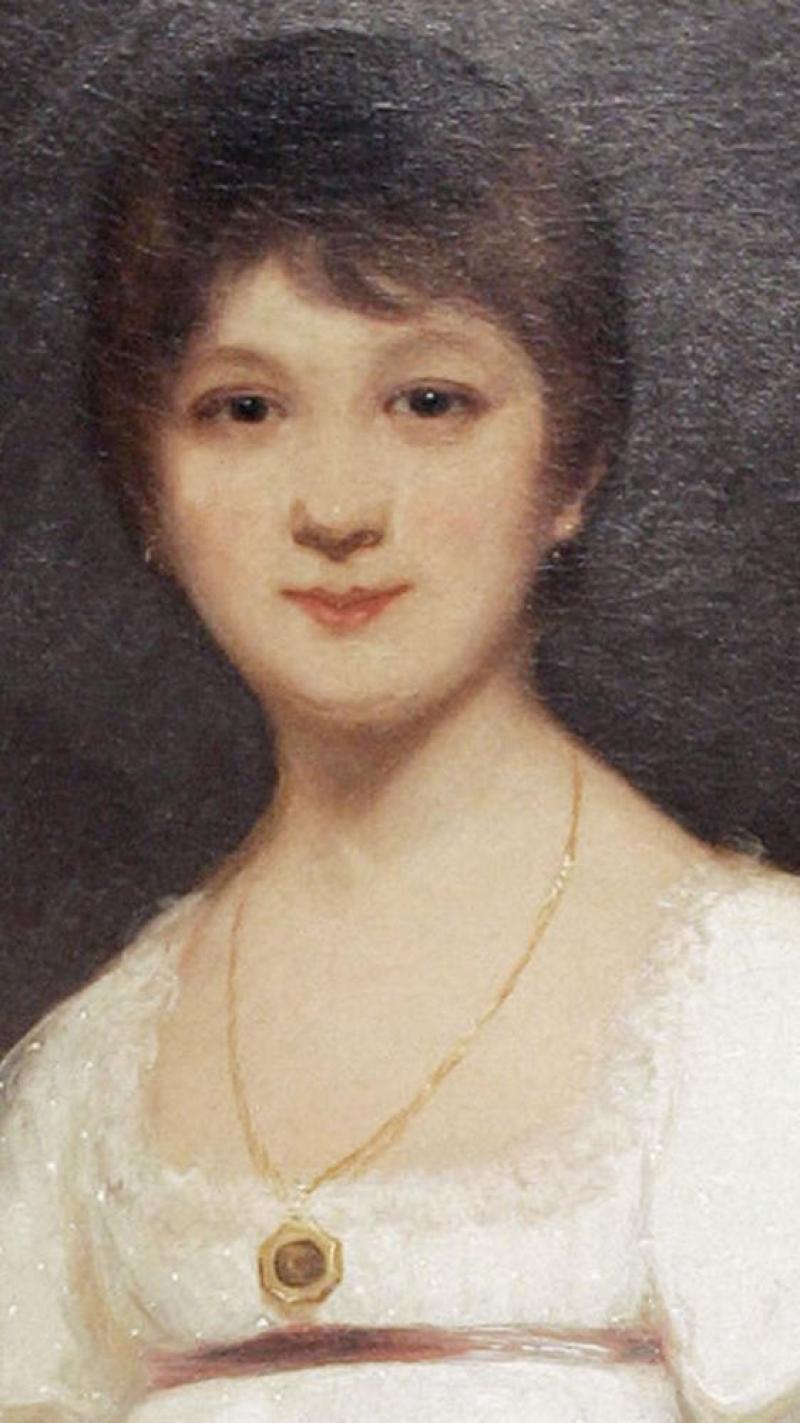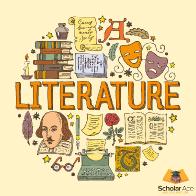Jane Austen: 6 Interesting Facts About the Beloved English Author
By: By Claire Bellanti And Iris Lutz

Jane Austen: 6 Interesting Facts About the Beloved English Author

Photo: STAN HONDA/AFP via Getty Images
Although she never married, Jane Austen did become engaged — for one night
Jane Austen received and accepted a proposal of marriage on December 2, 1802, two weeks before her 27th birthday. According to family tradition, she and her sister were visiting longtime friends Alethea and Catherine Bigg at Manydown Park when their friends’ brother, Harris Bigg-Wither, made the offer. Five-and-a-half years younger than Austen, Harris was, according to the author’s niece Caroline Austen, “very plain in person—awkward, & even uncouth in manner . . . I conjecture that the advantages he could offer, & her gratitude for his love, & her long friendship with his family, induced my Aunt to decide that she would marry him . . . .”
Austen changed her mind overnight, however, and refused the proposal the next morning. The awkwardness of the situation caused her to leave Manydown immediately. We can only speculate what Austen’s thoughts were about the proposal. Perhaps she initially accepted because the marriage would have given her financial security and the means to assist her parents and sister. And, perhaps she changed her mind because she believed — as she later wrote to a niece considering a marriage of convenience — that “nothing can be compared to the misery of being bound without Love.” Fortunately for her readers, she chose to remain single and was able to focus on writing rather than running a household and raising children.
Austen continued to imagine how the lives of her characters evolved long after she finished a novel
In A Memoir of Jane Austen , her nephew James Edward Austen-Leigh wrote, “She would, if asked, tell us many little particulars about the subsequent career of some of her people.” For example, Anne Steele, Lucy’s silly and vulgar sister in Sense and Sensibility , did not catch Dr. Davies after all. And, after the close of Pride and Prejudice , Kitty Bennet eventually married a clergyman near Pemberley, while Mary ended up with a clerk who worked for her Uncle Philips. Some of the most interesting revelations, however, related to Emma . Mr. Woodhouse not only survived Emma’s marriage to Mr. Knightley but also kept his daughter and son-in-law living at Hartfield for two years. Deirdre Le Faye has also noted in Jane Austen: A Family Record that "According to a less well-known tradition, the delicate Jane Fairfax lived only another nine or ten years after her marriage to Frank Churchill."
The surnames of several Austen characters can be found within the prominent and wealthy Wentworth family of Yorkshire — which also intersects with Austen’s own family tree
Her mother, Cassandra Austen, née Leigh, was the great-grandniece of the first Duke of Chandos (1673-1744) and Cassandra Willoughby. Her mother was also connected to Thomas, Second Baron Leigh of Stoneleigh (1652-1710), who was married twice: first to Eleanor Watson and then to Anne Wentworth, daughter of the first Earl of Strafford.
As Donald Greene, former English literature specialist at the University of Southern California, pointed out, “When the snobbish Sir Walter Elliot says of the hero of Persuasion , ‘Mr. Wentworth was nobody…quite unconnected, nothing to do with the Strafford family. One wonders how the names of many of our nobility become so common,’ it adds to the piquancy of the satire that Austen’s family was in fact ‘connected’ with the real-life Strafford Wentworths.”
Austen also used names from the Wentworth genealogy tree while writing Pride and Prejudice . Her hero Mr. Darcy, the nephew of an earl, bears the names of two wealthy and powerful branches of the Wentworth family: Fitzwilliam (as in the Earls Fitzwilliam of Wentworth Woodhouse, in Yorkshire) and D’Arcy.
Professor Janine Barchas of the University of Texas at Austin and author of Matters of Fact in Jane Austen has also noted that Austen used yet another Wentworth family name in the novel Emma : “In the 13th century, a Robert Wentworth married a rich heiress by the name of Emma Wodehouse.”
Austen took her writing very seriously
Austen began writing stories, plays and poetry when she was 12 years old. Most of her “Juvenilia,” as the material she wrote in her youth is called, was in the comic vein. She wrote a parody of textbook histories, " The History of England …by a partial, prejudiced and ignorant historian," when she was 16 years old. She also wrote parodies of the romantic novels of “sensibility” that were popular in her day. Austen’s family members read aloud and performed plays for each other, and she learned about writing from these activities and the comments her family made about her own efforts. By the age of 23, Austen had written first drafts of the novels that later became Sense and Sensibility , Pride and Prejudice and Northanger Abbey .
From the letters she wrote to her sister, Cassandra, and other family members, one can see that Austen was proud of her writing. She enjoyed discussing her latest work, sharing news about a novel’s progress at the printer, and offering advice on the craft of writing to other aspiring authors in the family. She also carefully tracked comments made by family members and friends about Mansfield Park and Emma and referred to Pride and Prejudice as her “own darling child.” Austen continued writing throughout her adult life until just before she died in July of 1817.
Austen’s life was not limited to a sheltered country existence
On the surface, her life seems to have been quiet and secluded; she was born in a small country village and lived there for 25 years. Her nephew James Edward Austen-Leigh published A Memoir of Jane Austen in 1869, which reinforced the image that she was a demure, quiet maiden aunt in the best Victorian tradition. However, she led a very active life with travel and social contacts of many types. Through her family and friends, she learned a great deal about the world around her.
Austen frequently stayed with her brother Henry in London, where she regularly attended plays and art exhibits. Her brother Edward was adopted by wealthy cousins, eventually inheriting their estates in Kent (Godmersham) and Hampshire (Chawton) and taking their name (Knight). Over a period of 15 years, Austen visited Edward’s Godmersham estate for months at a time, mixing with his fashionable and wealthy friends and enjoying the privileged life of the landed gentry. These experiences are reflected in all of her fiction.
Austen was also well aware of the horrors of the French Revolution and the effect of the Napoleonic Wars on the people and the economy of Britain. Her cousin’s husband was guillotined during the French Revolution, and her brothers Francis (Frank) and Charles were officers in the Royal Navy, serving on ships around the world during the conflict. Sir Francis William Austen (one year older than Austen) advanced through the ranks and was eventually knighted. He was promoted to Admiral of Fleet in 1860. Rear Admiral Charles John Austen (four years younger than Austen) had his own command and was serving in North America by 1810. From correspondence and frequent visits with these two brothers and their families, she learned much about the Navy, which she incorporated into Mansfield Park and Persuasion .
Men read Austen, too
While Austen’s novels are sometimes viewed as “chick-lit” romances, her believable characters, realistic plots, moral themes, comedy, and dry wit have long appealed to readers of any gender.
British Prime Minister Harold Macmillan admitted to reading Austen’s novels, and Winston Churchill credited her with helping him win World War II. Rudyard Kipling read Austen aloud to his wife and daughter each evening in an effort to raise their spirits after his son, fighting in WWI, was reported missing and believed dead. Even after the war, Kipling returned to Austen with “The Janeites,” a short story about a group of British artillery soldiers in WWI who bonded through their shared appreciation of the novels of Austen. And one of her male contemporaries, Sir Walter Scott, praised her writing in his journal: “Also read again, and for the third time at least, Miss Austen’s very finely written novel of Pride and Prejudice . That young lady had a talent for describing the involvements and feelings and characters of ordinary life, which is to me the most wonderful I ever met with.”
Tags
Who is online
67 visitors



I was quite amused to see the title of the last "interesting fact". I've read P&P over the years, starting with my grade 11 high school English class, probably about 10 times, watched the most recent two movies of it many times (BBC version with Colin Firth and Jennifer Ehle - I have the CDs) and the Keira Knightly one (in which Canadian actor Donald Sutherland plays her father).
Literati, whither goest thou?
I know you love Jane Austen, but it is a niche genre today, and you cant expect much response on a small forum like Newstalkers.
I know, John, but there needs to be a light in the darkness, doesn't there? Am I starting to sound like Jesus among the barbarians?
I'm in several Jane Austen groups on Facebook, and while there aren't many male members, they do exist.
As far as her engagement, I'm very glad she didn't marry for financial reasons, and as she once put it "dwindle into a wife." Married women at the time, even rich ones, were prevented by family duties and convention from being serious authors. Had she married, the world would have been robbed of some of the best-loved novels ever written.
Good point.